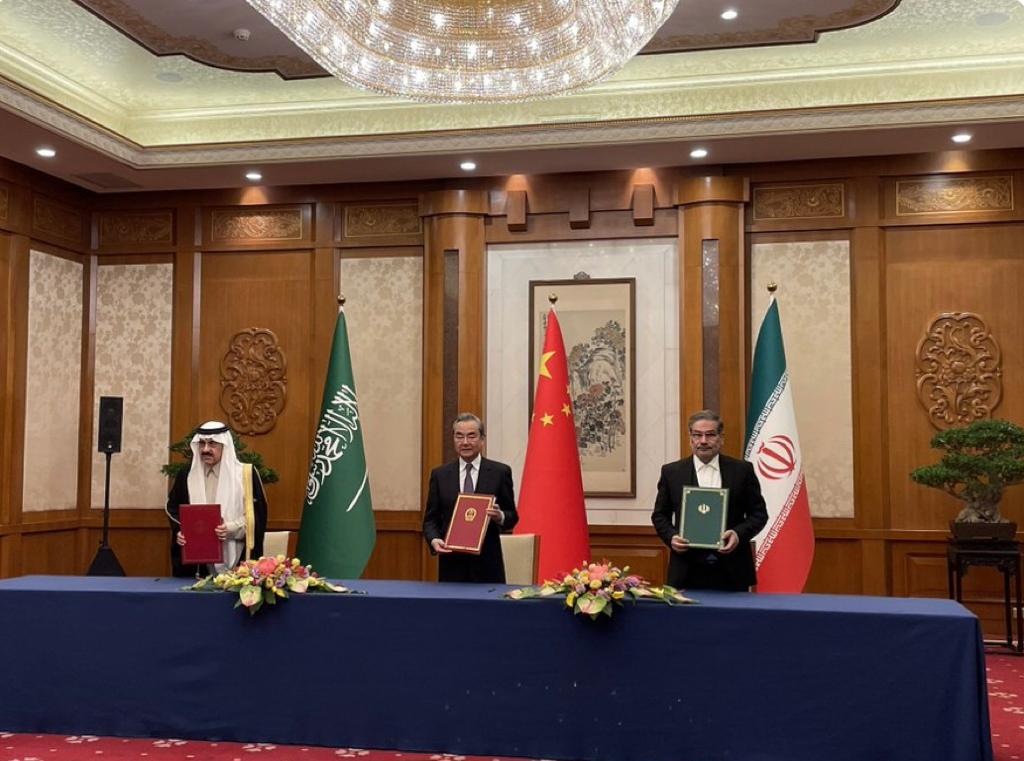The regional rivals, Iran and Saudi Arabia, have agreed to re-establish diplomatic relations and reopen their embassies within two months. The agreement was reached in Beijing.
Ali Shamkhani, secretary of the Supreme National Security Council of Iran, with Saudi national security adviser Musaad bin Mohammed al-Aiban displayed sincerity and China fully supported this agreement. The two countries had agreed to respect state sovereignty and not interfere in each other’s internal affairs.
Both sides, Riyadh and Tehran had also agreed to activate a security cooperation agreement signed in 2001. Riyadh, Tehran and Beijing “expressed their keenness to exert all efforts towards enhancing regional and international peace and security,” A source disclosed.
The Foreign Minister of China Wang, who was also present in the agreement, said China will continue to play a constructive role in handling hotspot issues and demonstrate responsibility as a major nation.
As a “good-faith” and “reliable” mediator, China has faithfully fulfilled its duties as a host for dialogue, he said.
Shia-majority Iran and Sunni-majority Saudi Arabia support rival sides in several conflict zones across the Middle East, including in Yemen, where the Houthi rebels are backed by Tehran and Riyadh leads a military coalition supporting the government. But both sides have recently sought to improve ties.
Besides the war in Yemen, Iran and Saudi Arabia also are on rival sides in Lebanon and Syria. Improved relations between Tehran and Riyadh, therefore, could have an effect on politics across the Middle East.















